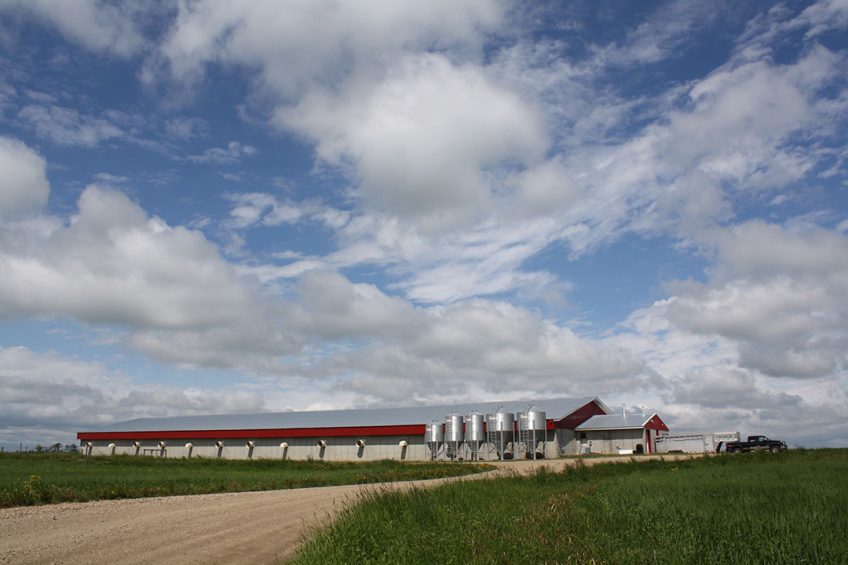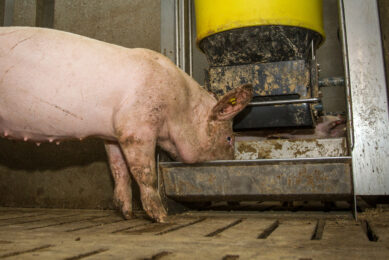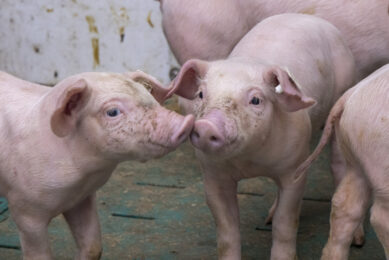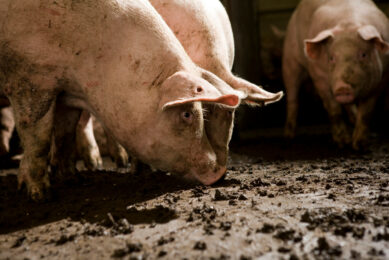Extreme risk for Canada’s hog producers due to Covid-19

Although Canada’s federal government provided some financial assistance to Canadian farmers on May 5, the Canadian Pork Council considers the support ‘very limited’ and says most Canadian pork producers are at extreme risk of going out of business.
“For the past 5 years, we have heard from our government that they want to help us grow our sector, yet when our house is burning, they are offering us a glass of water to save it”, stated Rick Bergmann, chair of the Canadian Pork Council (CPC) in a new press release. The CPC represents the 7,000 hog producers in Canada through 9 provincial associations.
In late April, CPC already noted that Canada’s pork producers faced an unprecedented crisis due to Covid-19. “Producers across the country now expect to lose CAN$ 30-50 per hog (US$ 21) for every hog they sell in 2020, costing farmers across the country CAN$ 675 million (US$ 479),” the CPC stated.
Pig farmers pushed to the brink
“Farmers are being pushed to the brink. Covid-19 has pushed the pork sector into free fall by disrupting supply chains and driving down prices. The market devastation caused by Covid-19 will only increase as the pandemic drags on.” Price issues are caused by mostly US market conditions, said CPC spokesperson Gary Stordy on May 7.
CPC asked for emergency payment
CPC asks the federal government for an emergency payment of CAN$ 20/hog (US$ 14) so pork producers can continue to pay bills and feed pigs. “Without it, family farms will be lost,” states the organisation. “In turn, we will continue to see disruption in the food supply chain, and increased food insecurity as supplies tighten and food becomes even more expensive.”

How do pork producers around the globe experience Covid-19?
Slaughterhouse issues continue, with 1 death so far
Plant operation has been a contentious topic in the province of Alberta after many workers at 3 meat processing plants were tested positive for Covid-19. The outbreak at the plant near High River, AL, owned by Cargill, is the largest single-site outbreak so far in North America. Over 1,500 people who work there or who are linked to workers were infected and one worker died. After a temporary closure, and recent calls (in some case protests and even legal action) from both workers and plant inspectors to extend its closure, the Cargill plant reopened on Monday, May 4.
Canada’s national pig processing capacity
In terms of Canada’s national pig processing capacity, Stordy said it changes weekly due to temporary closures and the number of workers available. New biosecurity protocols have reduced capacity country-wide.

Covid-19 Up-date
What impact is the pandemic having on the global pig sector and how are they dealing with it.
Optimising space in the pig barn
Because of the slowdown in pig processing (estimated to be 100,000 just in Quebec this week), on May 6 Quebec pork producer René Roy reported that he has optimised space in his barn and is choosing the largest animals for the limited processing available each week. Some farmers have been able to rent additional barns or farmland, but many in Quebec and across Canada are euthanising pigs. Stordy said the cost of culling per animal differs from region to region and depends on factors such as age of pig and location. “As producers face more difficult decisions every day and if they do not get significant support from the government, more are likely to throw in the towel’, he noted. “The future is bleak right now for pork producers. We are calling on consumers to ask questions, talk to their ministers of parliament and request that farmers be given the support they need to get through this pandemic.”











